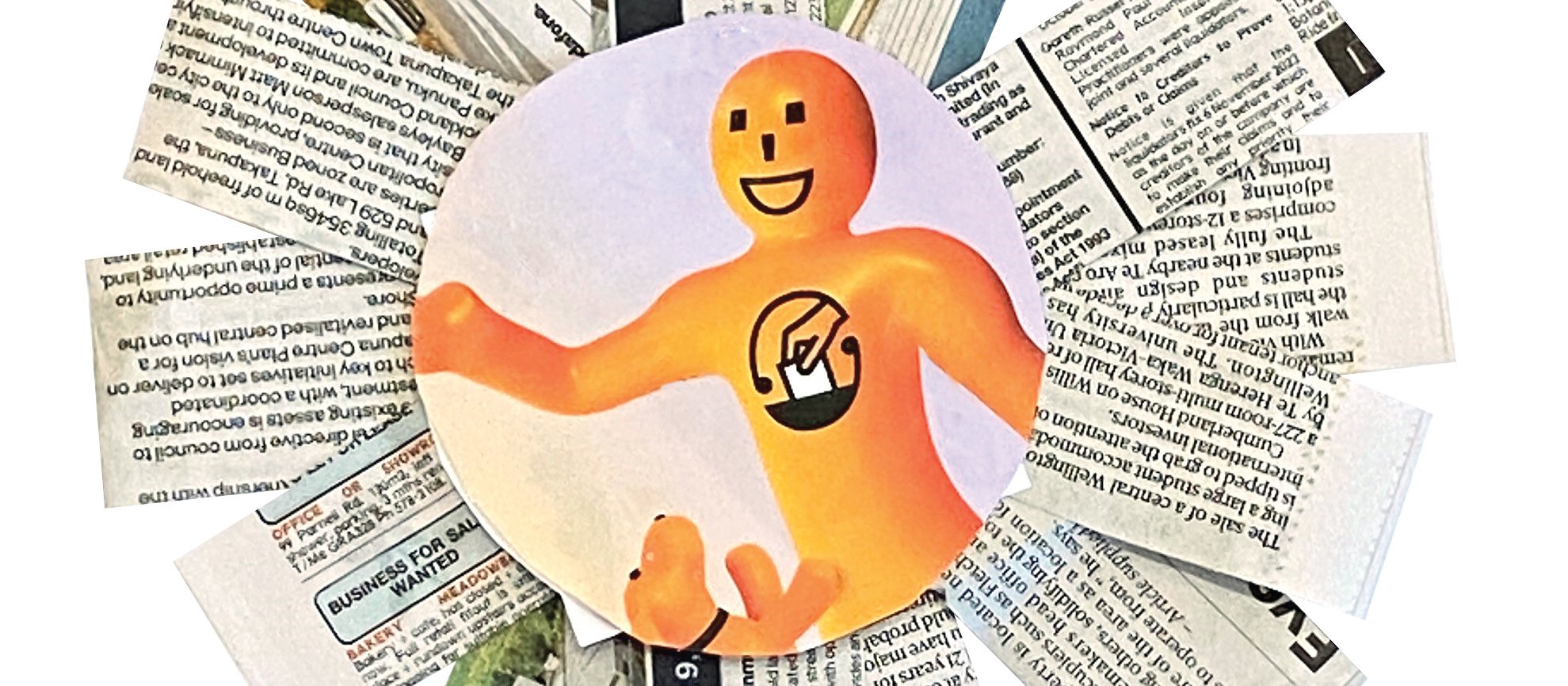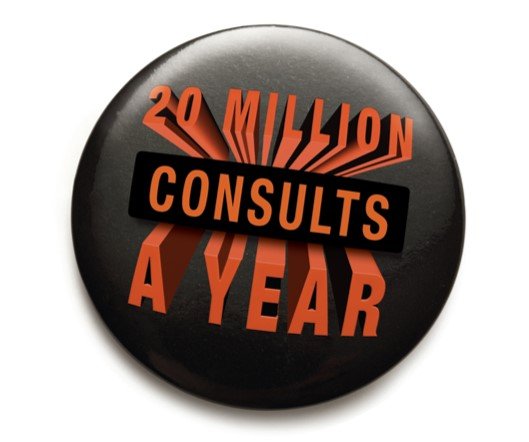Respiratory physician Lutz Beckert considers chronic obstructive pulmonary disease management, including the prevention of COPD, the importance of smoking cessation and pulmonary rehabilitation, and the lifesaving potential of addressing treatable traits. He also discusses the logic of inhaler therapy, moving from single therapy to dual and triple therapy when indicated, as well as other aspects of management
Party interrupted: Awaiting the specials
Party interrupted: Awaiting the specials

Anticipating the results of the special votes is a bit like waiting for a social occasion to hit its stride, writes Barbara Fountain
The real power [post-election] lies with those at the central health agencies. For now, that is Te Whatu Ora
After weeks of electioneering, the stream of campaign media releases has dried up.
It’s that twilight zone between governments; the awkward moment before a Saturday night party finds its mojo – the dips are out, but you’re not quite sure about the music selection.
The Nats and ACT are holding their breath, awaiting the tally-up of the half a million special votes. They stand like youths at a school dance, wanting to be the cool kids and avoiding direct eye contact with the not-so-cool kids trying to join their wall.
The band will still be warming up when you read this, so it’s hard to comment on the dance steps.
It has become a tradition in our household to have a political party on election night. Without disrespecting the event’s enormity for those standing, dedicated to their respective political causes, at our place, you randomly select a rosette as you arrive and become that party’s de facto representative as the election results flow in. Google provides your policy cheat sheet to back up any hoots or howlers you might add to the proceedings.
I drew DemocracyNZ, a party with which I was unfamiliar, grist to the mill for those who believe the media to be bought by the establishment.
My first thought was that DemocracyNZ might have evolved from the Democratic Party, with which I am familiar. The Democratic Party was the funky rebranding of the Social Credit Party. Back in pre-MMP days in 1981, Social Credit achieved nearly 21 per cent, but the cool kids pilloried it for its “funny money” policy and for some reason – I don’t recall why – for driving Skodas.
I should know. My dad stood for Social Credit, and I remember hitting the streets of Rangiora with a bullhorn on the top of our car as a youngster. I was surprised to discover the results of these campaigns on Wikipedia – Dad got 3.9 per cent of the vote in the 1972 election in which Labour’s Kerry Burke took the seat, and 3 per cent in 1975 when National’s Derek Quigley romped in. Not too shabby. And I’m sure he was driving a green Holden station wagon.
But, no, DemocracyNZ is not the Democratic Party reborn. Instead, it seems my chosen rosette has led me to a conspiracy theory lodestone – climate change denial and anti-vax. A friend finds her rosette has gifted her a policy “celebrating manliness” – the New Conservatives have something to say about gender identity. Both have thoughts on “race-based” policies.
There’s a lot to be said about the anti-inclusive nature of some of these tiny parties. Thankfully, it keeps them insular and unsuccessful.
A few people have asked me if the election outcome will benefit primary care and general practice. While National, ACT and NZ First promise funding with the potential to alleviate some of the sector’s pain, I am confident there will be significant strings attached.
After witnessing several health reforms, I’ve pretty much concluded that politicians are irrelevant.
The real power lies with those at the central health agencies. For now, that is Te Whatu Ora. As the largest agency, it drives the sector’s culture. It can choose to enable a “one system” culture as former health minister Andrew Little called for, or it can continue to run an “us” and “them” system – “us” being those working in public facilities and “them” being those working in the private sector, as much of primary care does.
If Shane Reti holds on to the health portfolio as he shifts from opposition to government, this is the real battle he faces.





![Barbara Fountain, editor of New Zealand Doctor Rata Aotearoa, and Paul Hutchison, GP and senior medical clinician at Tāmaki Health [Image: Simon Maude]](/sites/default/files/styles/thumbnail_cropped_100/public/2025-03/Barbara%20Fountain%2C%20editor%20of%20New%20Zealand%20Doctor%20Rata%20Aotearoa%2C%20and%20Paul%20Hutchison%2C%20GP%20and%20senior%20medical%20clinician%20at%20T%C4%81maki%20Health%20CR%20Simon%20Maude.jpg?itok=-HbQ1EYA)
![Lori Peters, NP and advanced health improvement practitioner at Mahitahi Hauora, and Jasper Nacilla, NP at The Terrace Medical Centre in Wellington [Image: Simon Maude]](/sites/default/files/styles/thumbnail_cropped_100/public/2025-03/2.%20Lori%20Peters%2C%20NP%20and%20advanced%20HIP%20at%20Mahitahi%20Hauora%2C%20and%20Jasper%20Nacilla%2C%20NP%20at%20The%20Terrace%20Medical%20Centre%20in%20Wellington%20CR%20Simon%20Maude.jpg?itok=sUfbsSF1)
![Ministry of Social Development health and disability coordinator Liz Williams, regional health advisors Mary Mojel and Larah Takarangi, and health and disability coordinators Rebecca Staunton and Myint Than Htut [Image: Simon Maude]](/sites/default/files/styles/thumbnail_cropped_100/public/2025-03/3.%20Ministry%20of%20Social%20Development%27s%20Liz%20Williams%2C%20Mary%20Mojel%2C%20Larah%20Takarangi%2C%20Rebecca%20Staunton%20and%20Myint%20Than%20Htut%20CR%20Simon%20Maude.jpg?itok=9ceOujzC)
![Locum GP Helen Fisher, with Te Kuiti Medical Centre NP Bridget Woodney [Image: Simon Maude]](/sites/default/files/styles/thumbnail_cropped_100/public/2025-03/4.%20Locum%20GP%20Helen%20Fisher%2C%20with%20Te%20Kuiti%20Medical%20Centre%20NP%20Bridget%20Woodney%20CR%20Simon%20Maude.jpg?itok=TJeODetm)
![Ruby Faulkner, GPEP2, with David Small, GPEP3 from The Doctors Greenmeadows in Napier [Image: Simon Maude]](/sites/default/files/styles/thumbnail_cropped_100/public/2025-03/5.%20Ruby%20Faulkner%2C%20GPEP2%2C%20with%20David%20Small%2C%20GPEP3%20from%20The%20Doctors%20Greenmeadows%20in%20Napier%20CR%20Simon%20Maude.jpg?itok=B0u4wsIs)
![Rochelle Langton and Libby Thomas, marketing advisors at the Medical Protection Society [Image: Simon Maude]](/sites/default/files/styles/thumbnail_cropped_100/public/2025-03/6.%20Rochelle%20Langton%20and%20Libby%20Thomas%2C%20marketing%20advisors%20at%20the%20Medical%20Protection%20Society%20CR%20Simon%20Maude.jpg?itok=r52_Cf74)
![Specialist GP Lucy Gibberd, medical advisor at MPS, and Zara Bolam, urgent-care specialist at The Nest Health Centre in Inglewood [Image: Simon Maude]](/sites/default/files/styles/thumbnail_cropped_100/public/2025-03/7.%20Specialist%20GP%20Lucy%20Gibberd%2C%20medical%20advisor%20at%20MPS%2C%20and%20Zara%20Bolam%2C%20urgent-care%20specialist%20at%20The%20Nest%20Health%20Centre%20in%20Inglewood%20CR%20Simon%20Maude.jpg?itok=z8eVoBU3)
![Olivia Blackmore and Trudee Sharp, NPs at Gore Health Centre, and Gaylene Hastie, NP at Queenstown Medical Centre [Image: Simon Maude]](/sites/default/files/styles/thumbnail_cropped_100/public/2025-03/8.%20Olivia%20Blackmore%20and%20Trudee%20Sharp%2C%20NPs%20at%20Gore%20Health%20Centre%2C%20and%20Gaylene%20Hastie%2C%20NP%20at%20Queenstown%20Medical%20Centre%20CR%20Simon%20Maude.jpg?itok=Z6u9d0XH)
![Mary Toloa, specialist GP at Porirua and Union Community Health Service in Wellington, Mara Coler, clinical pharmacist at Tū Ora Compass Health, and Bhavna Mistry, specialist GP at Porirua and Union Community Health Service [Image: Simon Maude]](/sites/default/files/styles/thumbnail_cropped_100/public/2025-03/9.%20Mary%20Toloa%2C%20Porirua%20and%20Union%20Community%20Health%20Service%20in%20Wellington%2C%20Mara%20Coler%2C%20T%C5%AB%20Ora%20Compass%20Health%2C%20and%20Bhavna%20Mistry%2C%20PUCHS%20CR%20Simon%20Maude.jpg?itok=kpChr0cc)